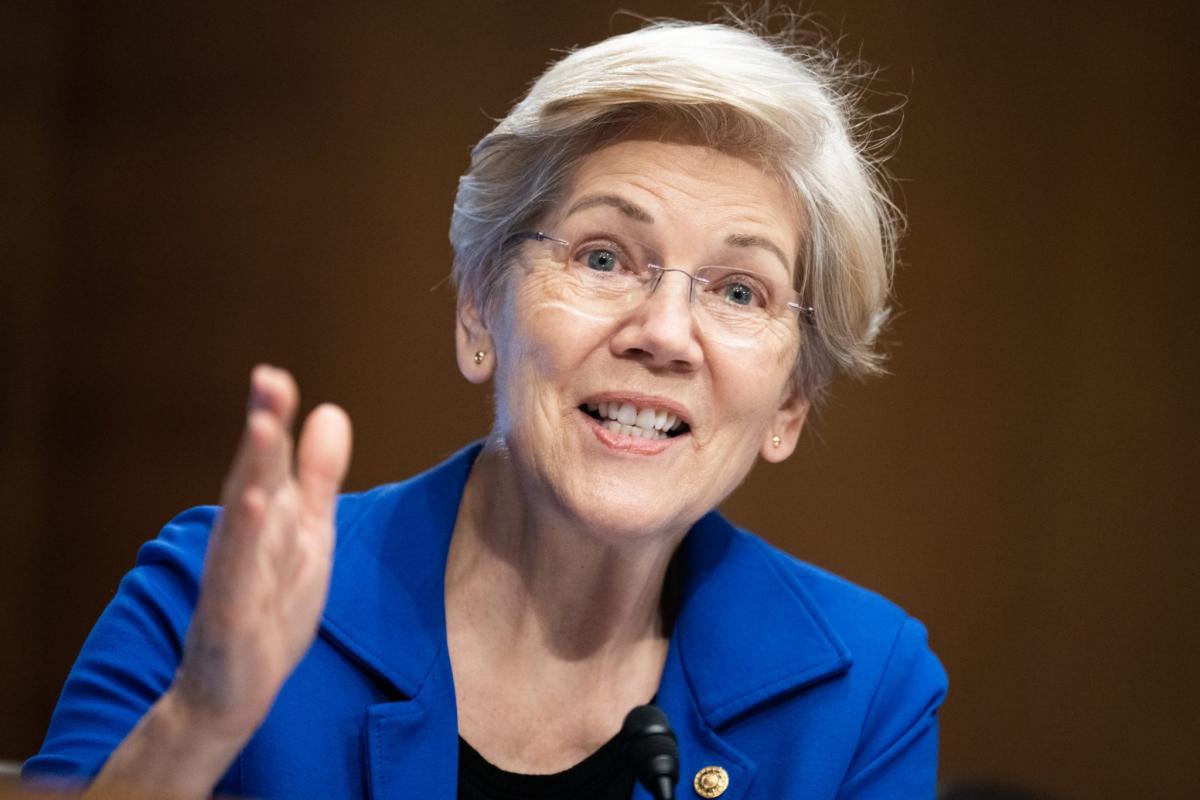Elizabeth Warren has targeted one of the largest supermarket chains in the US for possible excessive pricing.
In a recent letter, the Massachusetts lawmaker and fellow Pennsylvania Sen. Bob Casey argued that Kroger’s move to electronic shelf labels (ESLs) could allow the company and other chains to dynamically set grocery prices, creating scarcity around essential goods by pricing them “as if they were airline tickets.”
“The widespread adoption of digital price tags appears to be allowing big grocers to squeeze consumers to boost their profits,” reads the letter, which was sent last week to Kroger CEO Rodney McMullen. “Ordinary Americans continue to struggle to put food on the table because giant corporations, with little competition, can force customers to overpay for essential groceries while further boosting their profits.”
Kroger, which has nearly 3,000 stores in the U.S., began rolling out ESLs in stores in 2018. The new technology, called “Kroger Edge,” gave the company the ability to change prices instantly in dozens of stores. When Edge was first announced, it was promoted as a way to make shopping more consumer-friendly. The labels would feature video ads and coupons and allow shoppers to easily search for specific brands on their smartphones and even browse products based on dietary restrictions.
But the technology also raised concerns about so-called “surge pricing.” Like Uber’s prices that skyrocket during rush hour, grocery stores could raise the price of ice cream on a hot day or hot chocolate during a snowstorm. Instead of a fixed price that everyone can understand and compare, groceries would fluctuate not just based on conditions but potentially based on the customer, leaving the store “to figure out ways to extract the maximum profit from each customer,” the senators wrote.
Over the past decade, more companies have shifted from flat rates to displaying individual prices to customers. In addition to raising overall prices when demand is higher, Uber has been accused of charging riders more when their phone batteries are low. Staples showed online shoppers different prices for identical products based on their location, while travel site Orbitz showed higher prices to users on Macs, the Wall Street Journal reported. These largely legal practices allow AI to “pick your pockets,” one anti-surveillance activist wrote last month, just before the Federal Trade Commission announced a major investigation into differential pricing.
Kroger, in a statement to Fortunesaid the company’s digital labels were never intended to raise prices for consumers.
“Kroger’s business model is to lower prices over time so more customers shop with us, which results in more revenue that we then reinvest in lower prices,” the company said. “Each test of electronic shelf labels is designed to further lower prices for customers where it matters most. To say otherwise is untrue.”
Kroger announced it would expand its ESL operations in 2023, rolling out the technology to 500 stores across the U.S. In 2024, the company partnered with Intelligence Node, a retail analytics firm that uses AI to provide dynamic pricing.
In a press release announcing the partnership, Intelligence Node made no mention of dynamic pricing, saying only that it would help Kroger “enhance the online shopping experience by providing an experience that better informs shoppers’ product choices and purchasing decisions.”
Other grocery chains have followed in Kroger’s footsteps. In June, Walmart, the largest grocery chain in the U.S., announced it would implement ESLs in 2,300 stores by 2026. Whole Foods and Amazon Fresh have also begun the transition.
The senators concluded the letter with a list of questions that Kroger was to submit by August 20. These included what the average price change was for goods subject to dynamic pricing and whether Kroger ever changes the prices of goods more than once in a single day.
“It is outrageous that while families continue to struggle to put food on the table, supermarket giants like Kroger continue to implement high prices and other corporate profit-making practices,” they wrote.
This story originally appeared on Fortune.com




